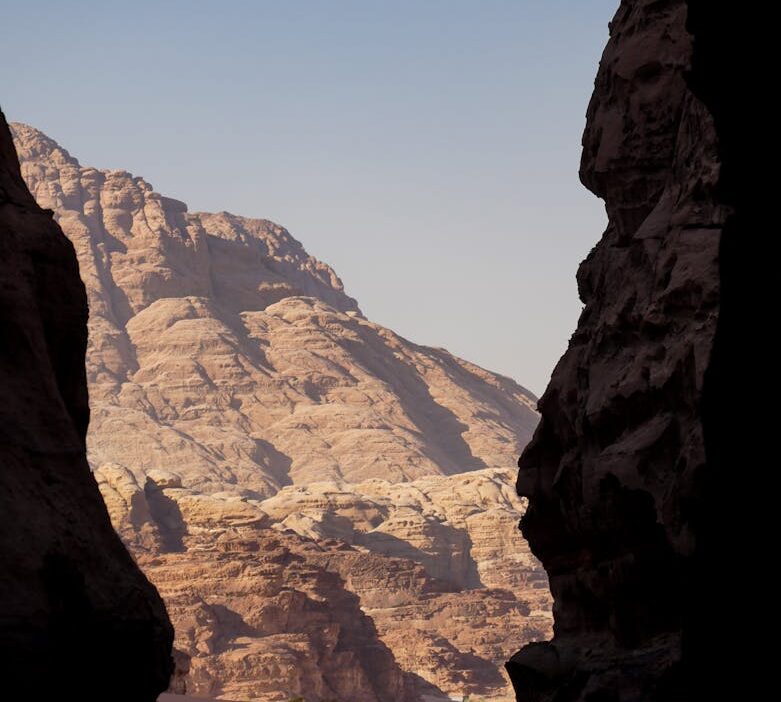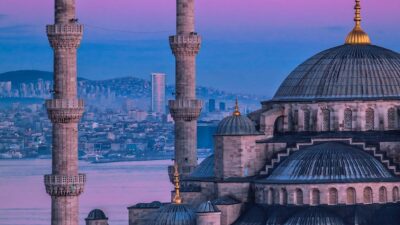Introduction
The article discusses the decision Abu Bakr (may Allah be pleased with him) to migrate, and the suppport he received from Ibn ad-Dughna.
Intense Persecution in Makkah
Four years after the Prophet Muh̩ammad (salalahu alaihi wa sallam) first received revelation, his message was slowly impacting on Makkan society . As more and more people in Makkah became Muslims, the Quraish lost their nerve, and intensified their persecutions against the Muslims. Seeing the afflictions on his companions, the Holy Prophet advised them to migrate to Abyssinia, ‘In Abyssinia, there is a king who does not oppress anyone in his land, so go to his country and stay there until Allah gives you a way out of your difficulties’[related by Al-Bayhaqi in Sunan Al-Kubra].
Migration to Abyssina
In Rajab of the fifth year of prophethood, a group of twelve men and four women left for Abyssinia (Ethiopia). Among the emigrants were ‘Uthman bin ‘Affan and his wife Ruqaiyah [the Prophet’s daughter]. With respect to these two emigrants, the Prophet said: “They are the first people to migrate in the cause of Allah after Abraham and Lot.”
With a heavy heart, Abu Bakr left Makkah one day with the intention to migrate to Abyssinia. He took the road to Yemen from where he was to sail for Abyssinia. When he had traveled some distance from Makkah, he met Ibn Ad-Dughna, who was the chief of the Qarah tribe, a section of the Quraish.
Support from Ibn ad-Dughna
Ibn ad-Dughna inquired of Abu Bakr as to where he was going, and he told him, My people have forced me from Mecca and I want to travel freely on earth to worship my Lord. Ibn-Dughna said: “O Abu Bakr, someone of your ranking and character does not leave and should not be forced to leave. You are always keen to fulfill the needs of others; you join the ties of kinship, support the weak, and you honour your guests. I will take you under my protection, and you should come back with me to Makkah. Rest assured, no harm will come to you.”
After Abu Bakr and Ibn Ad-Dughnah arrived in Makkah, they spent the entire night visiting the various noblemen of the Quraish. And to each one of them he said, “Verily, someone of Abu Bakr’s ranking and character does not leave (his homeland) and should not be forced to leave. Will you expel (from Makkah) a man who provides for the needy, joins ties of family relations, supports the weak, honours his guests, and helps others?” The leaders of the Quraish accepted Ibn Ad-Dughnah’s guarantee of protection, but they said to him, “Order Abu Bakr to worship his Lord in his home, to pray in his home, and to recite whatever he wants to recite in his home. He must not harm us with those acts by coming out and performing them openly, for we fear that our women and children will be put to trial (i.e., that they will become attracted to his religion).”
Abu Bakr in Makkah
Ibn Ad-Dughnah conveyed their stipulations to Abu Bakr, who then began to worship his Lord in his home. He abstained from praying in front of others, and he recited the Qur’an in his home but nowhere else. Abu Bakr then had an idea (which he immediately put into action). He built a place of worship in the courtyard that was adjacent to his house. Inside of that courtyard, he would pray and recite the Qur’an. The disbelieving women and their children would gather around him. Impressed by him (by his prayers and recitation of the Qur’an), they would gather around and simply watch and observe him. Abu Bakr was a man who cried frequently, a man who was not able to hold back his tears when he recited the Qur’an.
The Quraysh panic
The leaders of the Quraish began to panic, fearing that their women and children would become Muslims, and so they summoned Ibn Ad-Dughnah to come to them. When Ibn Ad-Dughnah went to them, they said, “Verily, we guaranteed the safety of Abu Bakr based on your guarantee of protection and based on the condition that he would worship his Lord in his home and nowhere else. He has transgressed the bounds of that condition. He has built a place of worship in the courtyard of his house, and there he prays and recites the Qur’an out in the open. And verily, we fear that he will tempt our women and children (towards his religion), so forbid him (from continuing to practice his religion out in the open). If he agrees to limit his worship of his Lord to his home, then that is fine; but if he refuses and is determined to openly practice his faith, then ask him to return back to you your guarantee of protection. For indeed, we do not want to deceive you by violating your guarantee of safety, but at the same time, we will not allow Abu Bakr to openly practice his faith.”
Abu Bakr relinquishes the offer of protection
Ibn Ad-Dughnah went to Abu Bakr and said, “You know what we agreed upon (that you will limit your religious activities to your home), so either you follow the terms of our agreement, or you return to me my guarantee of protection, for I do not want other Arabs to find out that my guarantee of safety for a man was ignored and violated (for that will bring shame upon me).” Abu Bakr said, “Then I return to you your guarantee of safety, and I am satisfied and pleased with the protection of Allah, the Possessor of Might and Majesty.” After he was no longer under the protection of Ibn Ad-Dughnah
Ibn ad-Dughna returned and told the Quraish that as Abu Bakr was no longer under his protection. Abu Bakr went out and was heading towards the Ka’bah when he was met by a fool from Quraish—who poured dirt over the head of Abu Bakr. Abu Bakr then passed by Al-Waleed ibn Al-Mugheerah and said, “Do you not see what this fool has done (to me)?” Al-Waleed said, “It is you who have done this to yourself (by refusing to abandon your religion)”, Abu Bakr then repeated this phrase three times: “My Lord, how forbearing and clement You are!'”
One of the benefits of this story is that Ibn Ad-Dughnah confirmed the lofty status of Abū Bakr. Second Abū Bakr was the first man to build a masjid in Islam.
To read about Abu Bakr’s migration to Madina, click here.
Summarised from Abu Bakr as-Siddeeq: His Life and Times. by Ali M. Sallabi.





